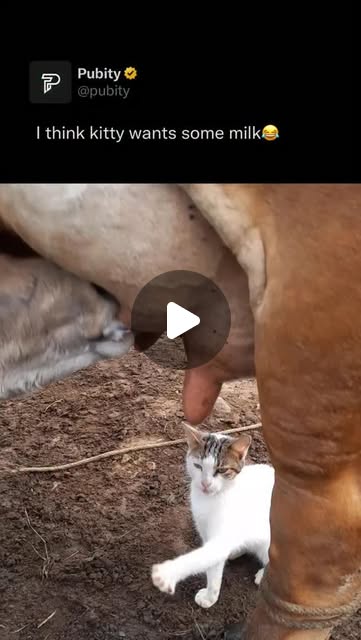Cats might be curious about cow’s milk and even enjoy sneaking a few laps, but most of them don’t handle it very well. Since many cats can’t digest the lactose in milk, it can leave them with a grumbly stomach or an urgent trip to the litter box. It’s kind of like how we might love ice cream but regret it later — tasty in the moment, but not always worth it.
The Curious Case of Cats and Cow’s Milk: A Digestive Dilemma
Have you ever witnessed your feline friend eyeing your glass of milk with an almost predatory gleam? It’s a common sight, this curious fascination with the white liquid. While the image of a cat lapping up milk is endearingly familiar, the reality is often far less idyllic. Let’s delve into the surprisingly complex relationship between cats and cow’s milk.
Lactose Intolerance: The Root of the Problem
The simple truth is that most cats are lactose intolerant. This means their bodies lack the enzyme lactase, which is necessary to properly digest the lactose sugar found in milk. Think of it like trying to unlock a door without the right key – it just won’t work. Instead of being broken down and absorbed, the lactose remains undigested, causing various unpleasant digestive issues.
The Unpleasant Aftermath
For your cat, consuming cow’s milk can translate into a range of uncomfortable symptoms. These can include everything from mild stomach upset and rumbling bowels to more urgent issues, such as diarrhea. Essentially, that seemingly innocent treat can quickly turn into a regrettable indulgence. Imagine the discomfort – it’s not a pleasant experience for your furry friend.
A Delicious Trap: Why Cats are Drawn to Milk
Despite the potential negative consequences, cats often remain drawn to the taste of milk. This might stem from ingrained instinctual behavior – kittens rely on their mother’s milk for nourishment, creating a positive association with the taste and texture. However, it’s crucial to remember that cow’s milk is vastly different from a mother cat’s milk, and therefore lacks the essential nutrients a kitten needs.
Safe Alternatives for a Happy Cat
So, what’s a cat lover to do when faced with a milk-loving feline? The solution is simple: avoid giving your cat cow’s milk altogether. Instead, consider offering them alternatives specifically designed for cats, like lactose-free milk substitutes or cat-specific treats. Their digestive system (and your cleaning routine) will thank you for it. Prioritizing your cat’s health and comfort ensures a happier and healthier life together.
